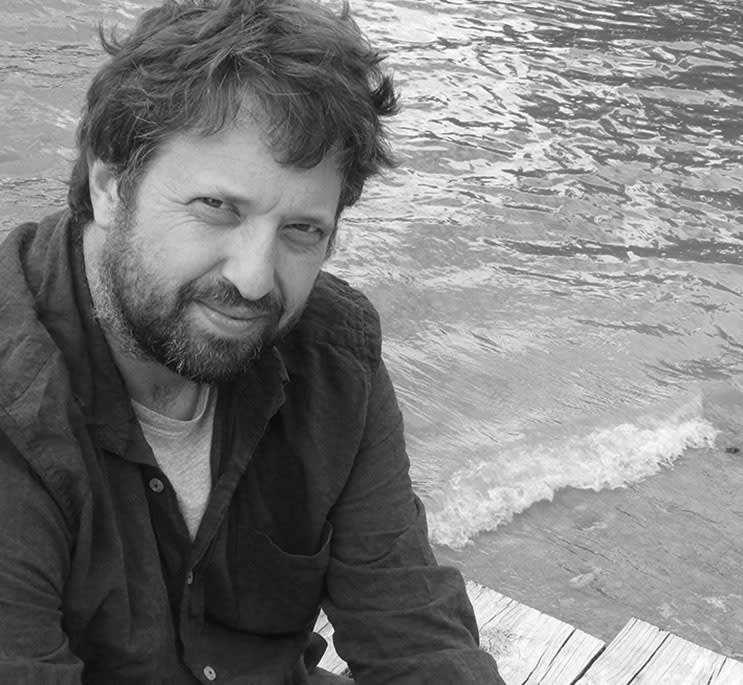
It seems that you have an urge to create. Not just painting but also sculpture and music. Do these other interests feed back into your painting?
I find that moving between creative vocations gives me a fresh perspective; and that it is easier to work back-to-back in the creative world using different media than it is from everyday life.
Whether something I make is 2D, 3D or sound, I aim to please my senses in a way that I hope the listener or viewer will also appreciate. Mixing music and composing songs is like painting, only layers of sound rather than paint are applied. I often find when moving from sculpture to painting that the paint has become thicker on the canvas as if I was still thinking like a sculptor.
Composition is key to all these creations. A song that doesn’t tell a story is as meaningless as marks on a canvas that have no significance, or a sculpture that doesn’t demand attention from the viewer.
You studied and worked in London for many years before moving to Skye in 2004. Was the move a lifestyle or an artistic choice?
I lived in London for over 10 years and it was there I discovered my passion for music and metalwork. I had a business creating curtain poles for a nationwide department store untilI I realised that I could never make a reasonable profit unless I expanded and became something I wasn’t prepared to be.
An opportunity came up in Blair Atholl to purchase the Old Smiddy, and the dream of having my own workshop and gallery took hold. I had trained as an artist and this was my calling. One day I packed up my belongings and left the city, never to return. I remember waking up the following day in a highland village thinking ‘what have I done.’ Life was quiet, and I had left all my friends and urban lifestyle behind.
I love the fun and freedom of your paintings. How do you respond to the labels (faux) naive and primitive? And who are your artistic heroes.
I consciously decided to paint in a ‘faux’ naive way because something about the genre resonated with me. Some of the imagery I had seen in folk art and children’s book illustrations harked back to the time I was born, the early 1970s. The style is a great way to express humour or joy in a more subtle way than simply spelling it out, There is a quirkiness to the Naive that sits between descriptive and pure expression.
When I started painting I discovered the work of Alfred Wallis. I was compelled by his composition and the raw way he painted. Wallis inspired me to let go of my training. I have long been an admirer of many other British naive painters including Lowry, Fred Yates, Simeon Stafford, Gary Bunt and Alan Lowndes. More recently I have been studying the work of John Bellany.
